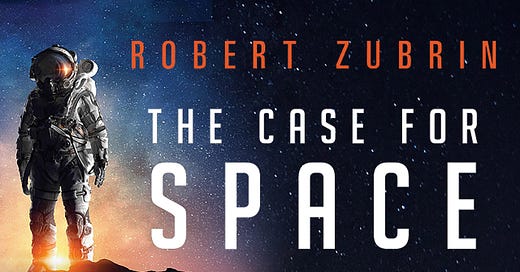How Going to Space Can Enhance Human Flourishing, with Dr. Robert Zubrin
I recently interviewed Dr. Robert Zubrin of the Mars Society about why freedom and space colonization are essential for the future of human flourishing.
Keep reading with a 7-day free trial
Subscribe to The Objective Standard to keep reading this post and get 7 days of free access to the full post archives.




